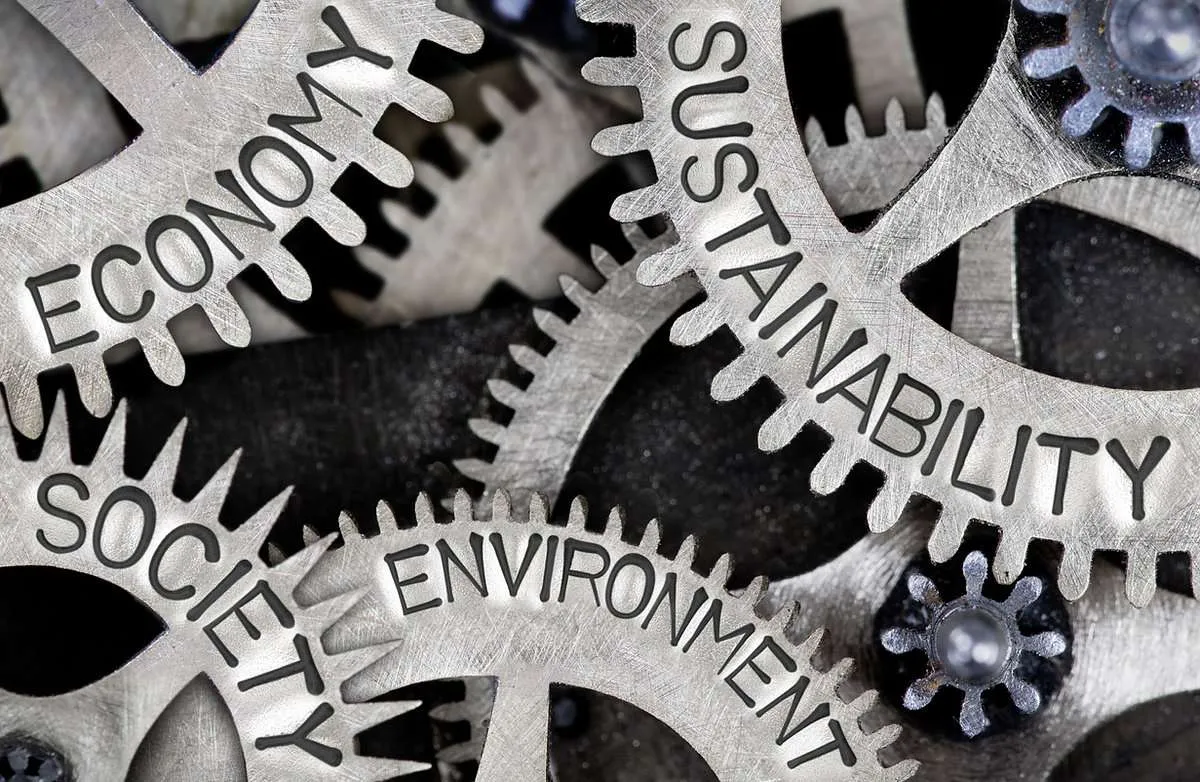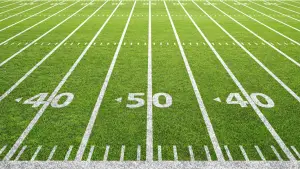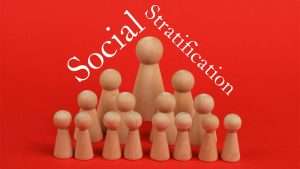As a guest contributor for Applied Worldwide, I recently had the opportunity to interview Sulaiman Ayuba, a Master’s student of sociology, at Madhav University, India. Sulaiman Ayuba sheds light on the relationship between a society and its economy, sometimes referred to as sociology of the economy.
This sociology piece examines the nexus between social economy, roles of the working class, and disparity in the idea of tax payment and economic welfare. In doing so, it reveals differences between the fields of sociology and economics.
Thank you for joining this conversation on sociology of the economy Mr. Ayuba, please tell us more about yourself?
My name is Sulaiman Ayuba. I am Hausa by tribe, and an indigene of Gombe State, in Nigeria. Academically, I have my undergraduate degree from the prestigious Gombe State University, where I had Bachelor of Science in Sociology. I am currently studying to have Master’s of Art in Sociology at Madhav University, India. As an individual, I love discussions on concepts that have to do with knowledge—knowledge sharing and its application. I write prose often, and more specifically I write articles on arising social issues.
To begin, can you tell us whether human society could exist without an economy and why?
This is a question that I think sociologists can best answer. There is no society that have ever existed without an economy. Economy is the realm (base) in every society. It is like the steering or an engine in a car, without which the car cannot move.
A society is built up with interconnected parts, such as politics, religion, economy, education, health and more. These parts that make up a society are called “Social Institutions”. It is these institutions that come together to ensure the smooth running of the society.
Basically, an economy is the motherboard for production and human sustainability. Without ‘economy’, do you think human beings can survive on this earth ? No, humans would not survive, because they need to labour and eat food for survival.
In the work of Karl Marx titled “Economic Determinism”, he pointed out that ‘economy’ is the engine that determines almost everything in the society. People need food, shelter and clothes for survival, and fundamentally it is the economy that will provide them with such necessities of life.
Certainly, societies change in epochs, but economy is constant, almost every society has its economic means of survival. There is no society that would exist without an economy—starting from hunting and gathering society to slavery, slavery to feudalism, feudalism to capitalism—all these aforementioned societies ran their activities via economic mode of production starting from family hood on to a societal scale.
As such, an economy is the backbone of every society. Any society without ‘social economy’ is liable to experience hunger, starvation and malnutrition. Take Gaza, Syria, Mali, and the likes, whose economies are affected by war—[what] they look like ? Are they going to survive without the economy ? I think otherwise. Therefore, human societies cannot exist without ‘economy’. Adding to it, if an economy is affected, the whole society will be affected.
So what exactly is the relationship between sociology and economics or sociology of the economy?
Both economics and sociology are social science based disciplines, i.e. they both focus, wholly on human behavior. But the focus and concern of each discipline varies; depending on their subject matter and context.
Sociology focuses on human behavior, in terms of interactions and relationships with other people, be it in group or as individuals—it studies human society holistically. On the other hand, economics focuses on human behavior, in actualizing and utilizing the available resources around us. The economy will look at the behavior of the people at which they seek to have access to the resources around them and utilize them to quench their thirst.
Therefore, I can boldly say that, sociology is not economics, and economics isn’t sociology, as they both differ in theme, perspective, approach, subject matter and in line of concern. Perhaps, they both apply the same methodology to study human behavior, but they bear different interpretation.
Do you think sociologists are technocrats who can solve economic issues?
You see, sociology is far beyond what some people think it is. People apply their elementary knowledge of social studies to think they are talking about sociology. It is an unbeatable fact to understand that as the world changes day after day, so also does sociology change.
Sociologists study everyday life situations around them. Almost everything in the society is subject to scrutiny by sociologists. We have sociology of death, we have that of aging, crime, gender, health and the like. Therefore, if sociology can study everything in a society and proffer an explanation to the problems of the society, why not provide a suitable explanation that can tally with economic realities and solve the economic problems in a society.
In sociological studies, sociologists apply economic indices and indicators, so as to detect the level of sustainability, rate of inflation, poverty rate and the standard of living in the society.
It may interest you to know that in the field of sociology we are dealing with the subfields such as economy and society, in providing indices to the suitable explanations and clear analyses of how people benefit from the economy or the relationship between the economy and the society.
Econometric analyses such as ANOVA, T-test, Chi-Square, Regression, Correlation and the likes, are applied by sociologists to know the rate of poverty, the standard of living and how the economy of a state is moving; be it backward or forward to empower standard of living in any given society.
As such, if a sociologist uses procedures mentioned above to gather facts on the economic problem in a society, he will arrange his findings with a logical conclusion and present them to the government or a body that employed him to carry out that research in form of a proposal. What would be left to do is for that body to execute such findings into action.
In addition, sociologists are doctors of the society, social engineers who can provide suitable explanations to the problems that are baffling societies. However, providing an economic insight, by sociologists is still one of the major duties of sociologists.
In your opinion, how well have sociologists performed in developing social economy overtime?
In order to understand this issue, I would like to draw your attention to the point that sociologists aren’t concerned with the productivity or the amount of goods a company can produce for itself. In a complex organization, the role of sociologists is to assess the economic welfare of the people. Take for instance, are people eating three square meals a day ? And is government coping with the proposal given by sociologists that will help to improve the betterment of the people in a society? These and many more are the core concerns of sociologists on social economy (economy in relation to people).
Therefore, if that is the case, sociologists have extremely great works in various paradigms of life. If you visit social welfare organizations, internally displaced persons camps (IDPs), and various orphanage homes, you will see that sociologists have done a great job in proposing such strategies that will help lives.
On Income – Into Your Dose of Knowledge on sociology of the economy, What’s Income?
Income is the amount, or money received by government or any private body out of investment. In a more sociological sense, it is the amount of money or funds received by the government that may be use to provide betterments to her people.
Should Economic Welfare Be Measured with the Quality of Income Received or Utilized?
Yes, it should. The welfare of the people depends on the provision of better standard of living enjoyed in a particular state or country. It may also be the access to good roads, food, and social amenities in general. However, these amenities that are in the form of social welfare to the people will surely be measured by the quality of the income received or utilized by the government. In the sense that government cannot materially plot magic to get money.
The quality of what government can cater for, heavily relies on its earnings (income). For example, if Nigeria is earning $10 billion in a month as income, the better judgment we can do to the government is not to expect a welfare that is beyond that amount of money received in a month.
On Price Control – Are There Bad Side to it if Government Exercise Price Control Regulations, to Prevent Excessive Prices in The Country?
It is bad for the government to exercise her authority by imposing price control on goods. There are different places to buy goods in Nigeria, goods which are from different distance, and that would definitely be of different prices. We should not expect a price of a certain commodity to be the same in Lagos state and in Kano state. Perhaps someone buys a pair of shoe in Lagos with the intention of selling them in Kano Market.
Differently, another person may buy his own from Kaduna, also to sell in Kano Market. As such, when the government impose price regulations, it hasn’t performed economic justice to the necessary justice in determining the distance of the varying places, to avoid trading loss. If he buys a commodity from Lagos at 1000 naira and at 800 from Kaduna, then imposing price control will only harm the idea of profit maximization.
To me, if government is to regulate market and its prices in Nigeria, it will be of better interest for her to establish companies, producing goods and be the determinant of the prices.
But on the other hand, government can also import goods like rice, cars, fertilizer from abroad and subsidize the prices in order to regulate the market.
Considering The Difference in Human Economic Abilities, Should There Be Equal Tax Payment Among Citizens?
Uniformity in tax payment is injustice. We (as individuals) are not in the same economic capabilities. If I have two cars and my neighbor is having only one, I am expected to pay more tax than him. Our earnings should also be a determinant of how much we are supposed to pay as working citizens. If someone is getting 100,000 naira monthly, and the other is getting a token of 15,000 naira the mode of collecting tax from them should be different. If not, there will be a form of social chaos in societies, because ‘people cannot give what they don’t have.
It often happens in developed countries where people pay electric bills, car and house insurances based on their earnings. Which by way has been applicable to tax payment.
It is not a good way to have people pay uniform tax when their earnings vary.
How Should the Working Class Contribute to the Development of the Society?
By giving what they have and paying their dues. If the working class can work effectively by dedicating their time and energy, then, the society can develop. And if they can be good citizens by obeying the laws and paying their taxes, then, the society will surely progress. So many societies have developed by having good citizens that are patriotic, hardworking, and sorts who can pose selflessness, for the sake of social development.
Thank you for your contributions to sociology of the economy. I hope you would give your attention a next time?
Definitely. Thank you Applied Worldwide







